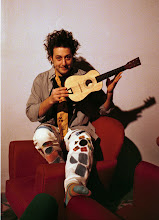
ΤΕΛΕΥΤΑΙΕΣ ΠΑΡΑΣΤΑΣΕΙΣ ΤΗΣ ΣΑΙΖΟΝ ΩΣ 8 ΜΑΙΟΥ
Stand up comedy has often been described as one of the hardest acts to pull off. It basically consists of one person standing in front of an audience and trying to make them laugh. Many professionals say that stand up comedy can be harsh and lonely. This may be where the phrase, I died up there, first originated.Unlike an actor, a stand up comedian fails or succeeds on his or her own talent. An actor usually has a script to fall back on and a team of other actors to rely on. Stand up comedy is only a single, hopefully talented person with either a very likable personality or an arsenal of jokes.Stand up comedy can take many forms. It can consist of a monologue of amusing incidents that may form a story. It can be a string of stinging one-liners, or simply a succession of jokes. Stand up comedy can also be performed almost anywhere – clubs, bars or parties. Wherever there is a microphone and a would-be entertainer, stand up comedy exists.The art of this type of performance has gone through many changes. Gone are the slapstick days of vaudeville and the old time gag performers such as George Burns, Bob Hope and Jack Benny. The 1960s and 70s brought new performers with a different approach. The new comedy was subversive, message comedy. It used political and topical content to raise social questions and change the public's thinking.Comedians such as Lenny Bruce and Bill Hicks got in your face and into your brain as they broke comedy barriers. Lenny Bruce was arrested many times for his particular brand of comedy. These stand up comics challenged mainstream comedy to a fight and then wiped the floor with it.
 Stand-up ένα είδος κωμωδίας στο οποίο ο καλλιτέχνης έχει άμεση επικοινωνία με το κοινό, συνήθως σε όρθια στάση και με χρήση μικροφώνου, με την απουσία ενός θεατρικού «τέταρτου τοίχου». Είναι κυρίως διαδεδομένη σε δυτικές χώρες και εκείνες που έχουν επηρεάσει. Ο κωμικός συχνά διηγείται μια γρήγορη ακολουθία χιουμοριστικών ιστοριών ή σύντομων αστείων τα οποία αποτελούν το μονόλογό του ( άμεση επικοινωνία με το κοινό. Μερικοί κωμικοί χρησιμοποιούν βοηθήματα, ειδικό ρουχισμό, μουσική ή «μαγικά» κόλπα για να ενισχύσουν τον ρόλο τους έννοια είναι περισσότερο συνυφασμένη με «κωμικός απέναντι σε κοινό» παρά με το κλισέ ενός μικροφώνου και ενός όρθιου ανθρώπου.
Stand-up ένα είδος κωμωδίας στο οποίο ο καλλιτέχνης έχει άμεση επικοινωνία με το κοινό, συνήθως σε όρθια στάση και με χρήση μικροφώνου, με την απουσία ενός θεατρικού «τέταρτου τοίχου». Είναι κυρίως διαδεδομένη σε δυτικές χώρες και εκείνες που έχουν επηρεάσει. Ο κωμικός συχνά διηγείται μια γρήγορη ακολουθία χιουμοριστικών ιστοριών ή σύντομων αστείων τα οποία αποτελούν το μονόλογό του ( άμεση επικοινωνία με το κοινό. Μερικοί κωμικοί χρησιμοποιούν βοηθήματα, ειδικό ρουχισμό, μουσική ή «μαγικά» κόλπα για να ενισχύσουν τον ρόλο τους έννοια είναι περισσότερο συνυφασμένη με «κωμικός απέναντι σε κοινό» παρά με το κλισέ ενός μικροφώνου και ενός όρθιου ανθρώπου.


























